Self: Reflection
Works by James Rauchman
James Rauchman, 'I/Eye’, Oil on canvas, 20" x 20", 2015
Folley Hall Gallery
July 22nd, 2021 - October 29th, 2021
River Arts announces Self: Reflection, a selection of works by artist James Rauchman. Self: Reflection will be on display in the Folley Hall Gallery from July 22nd till October 29th.
James Rauchman has been painting self-portraits for nearly 40 years in an attempt to grapple with being an outsider—a gay man and an artist—and reflect on identity within the context of a society not quite able (or ready) to accept him. The works push at the boundaries of portraiture, from unapologetically realistic to playfully abstract. After decades in New York City and other urban climates, James is delighted to be showing these works together for the first time, in Vermont where he feels he has finally come home.
Exhibition Reception and Artist Talk
Thursday, August 5th
5:30 to 7:30pm
Selections from the Exhibition
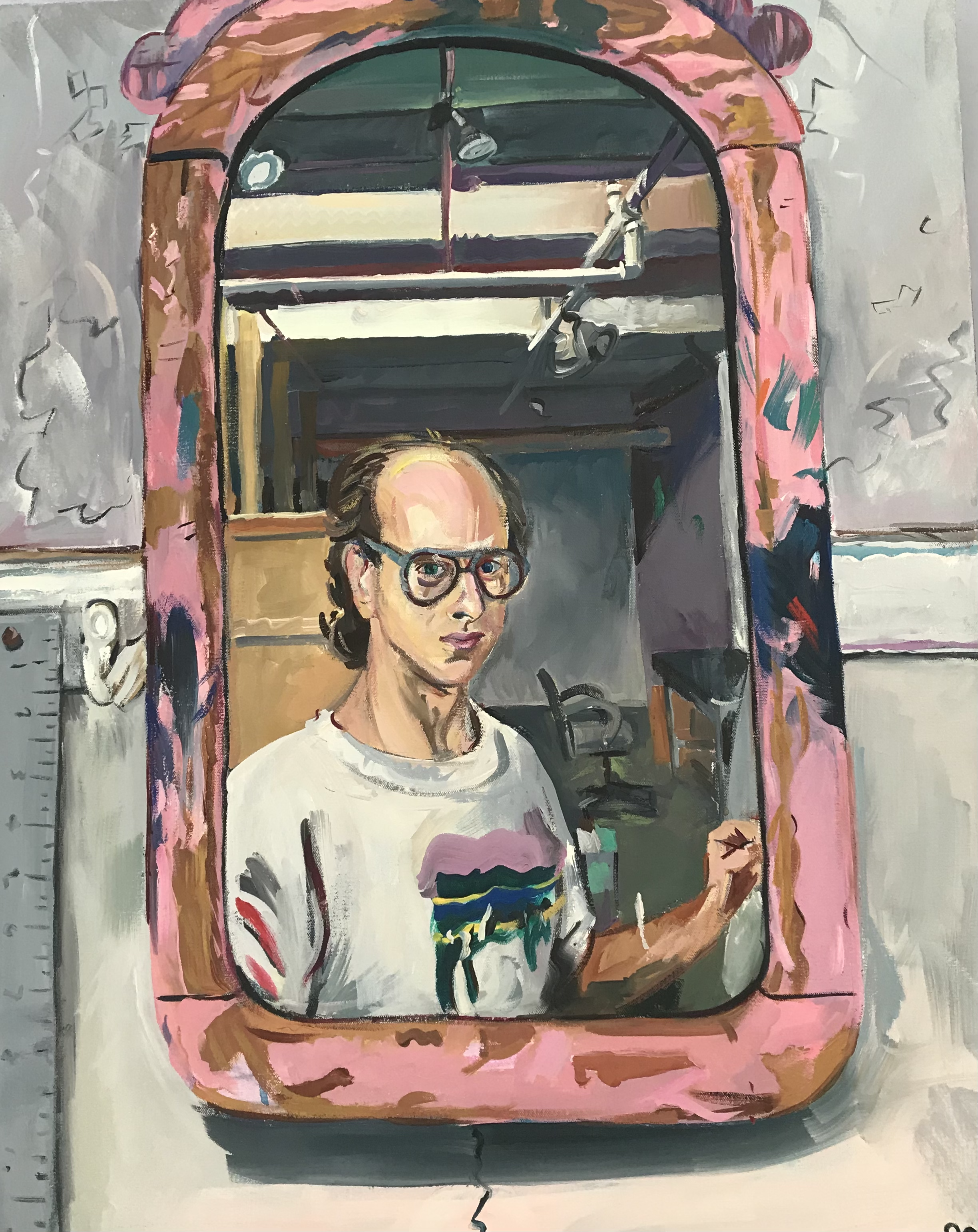
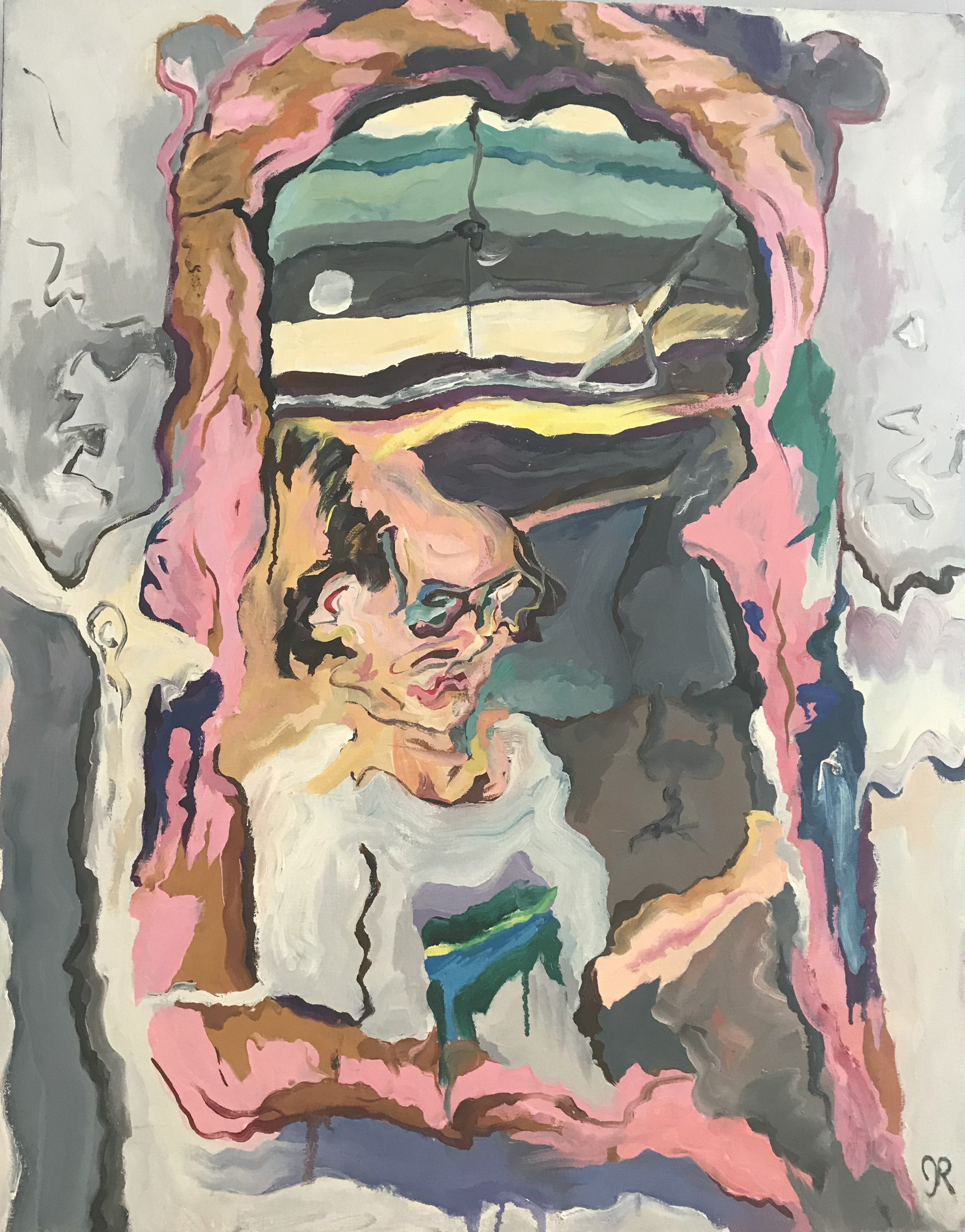
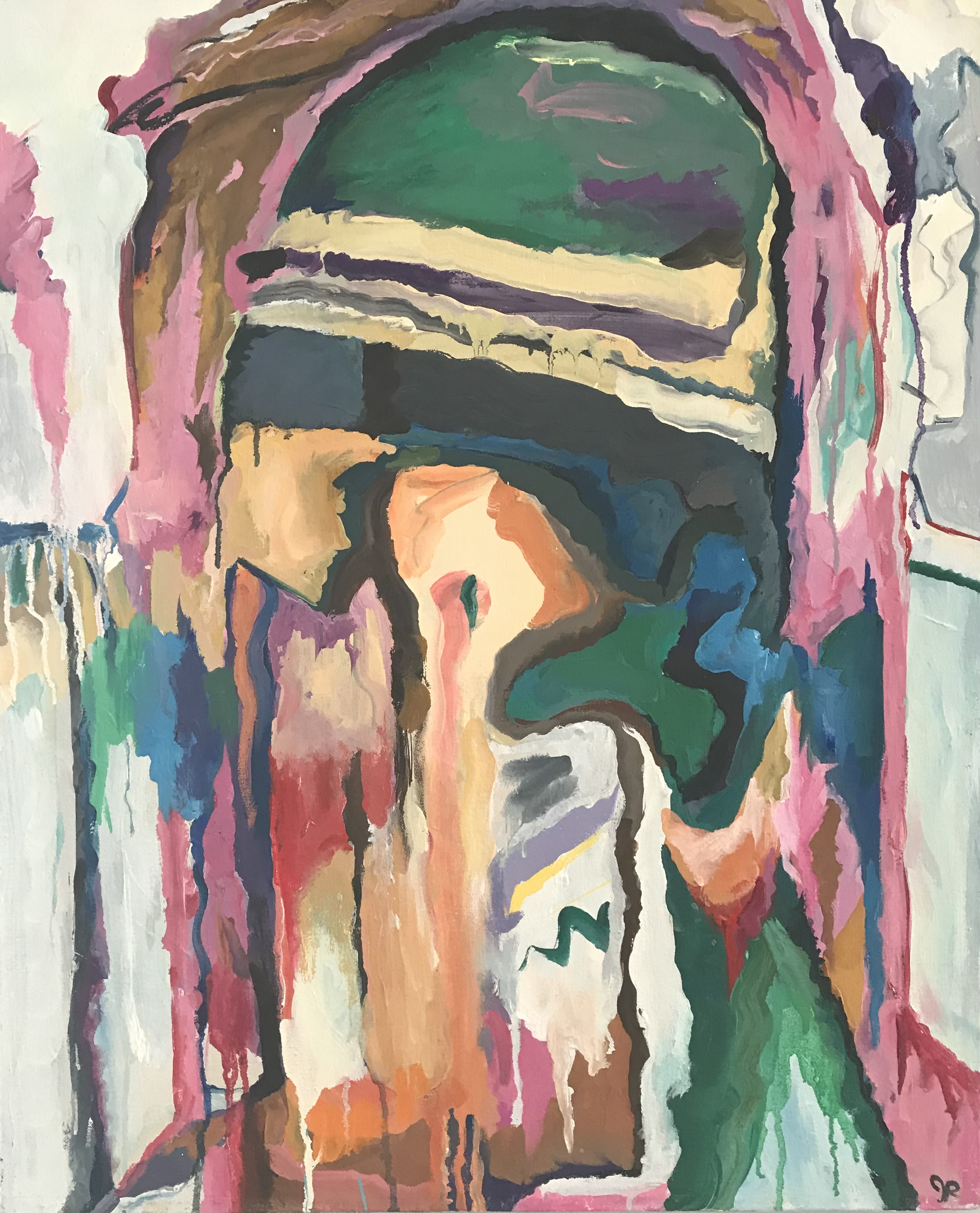
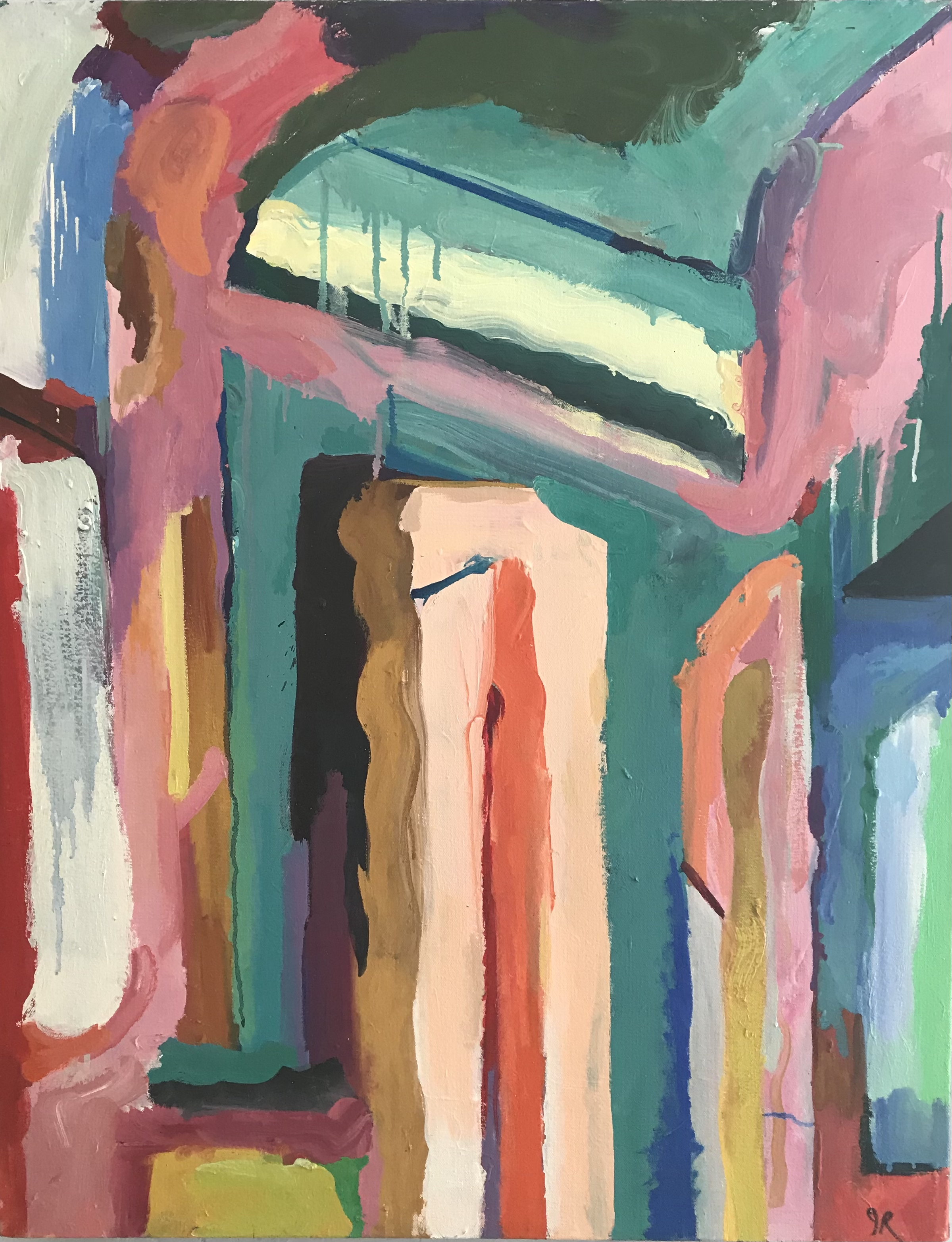
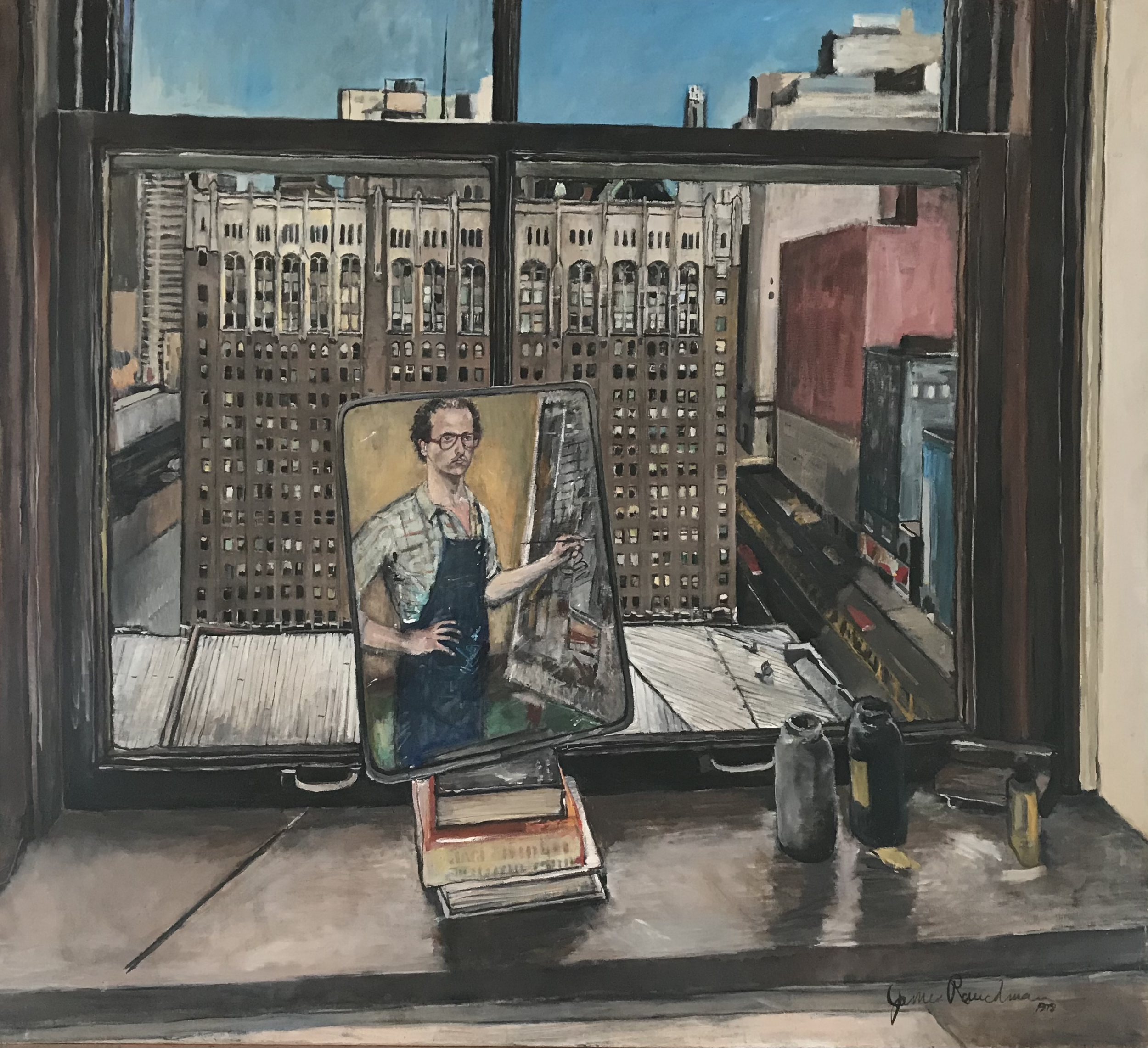

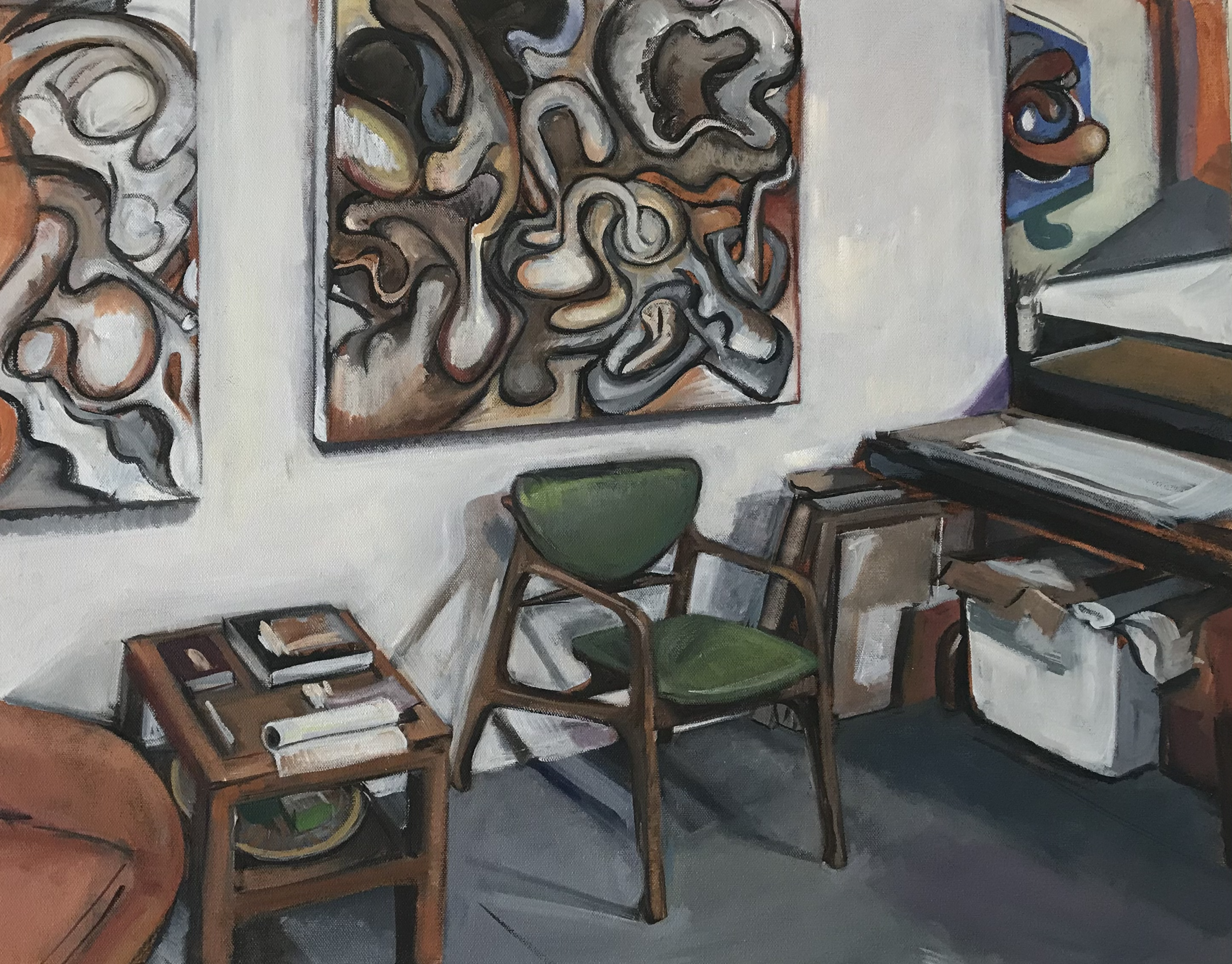
Curatorial Statement by Beth Weintraub Liberman:
Reflection, by definition, is both the act of contemplation and the bouncing back of an image (or light) from a surface. It is brutally honest, presenting back at us (to us?) what we look for, examine, and yet perhaps don’t want to see. In this collection of paintings spanning nearly 40 years, James Rauchman uses self-portraiture to reckon with feelings of insecurity stemming from the exclusion and rejection he experienced while attempting to insert himself into the conversation of the world. From unapologetically realistic to playfully abstract, the works push at the boundaries of portraiture.
Alongside classic sitting mirror self-portraits are paintings which incorporate objects and/or interiors, in effect challenging the conception that a self-portrait must have a human figure painted in it. The quadriptych “Coming Out” literally morphs the artist as a tentative and pale young man into an exuberant architectural interior of unapologetically bold geometry and color.
This retrospective, while neither linear nor explicitly representing the artist’s identity as a gay man, chronicles his experience of feeling like an outsider and grappling with both society’s perception of him and his own perception of self. “I spent the first 20 years of my life wondering how to keep my deepest self a secret, since the society around me was not just policing my desires, but seemed ready to prosecute,” says James Rauchman. “The secrets of my deepest self didn’t only involve sexuality, but the passionate desire to be an artist, too. That’s another difficult identity to own up to.”
Explorations of self bounce from the metaphorical to the literal—empty chairs seem lost in the vastness of the studio, viscera unravel to become anthropomorphic viewers in a gallery of the artist’s work, the artist is depicted exactingly, brooding on the viewer or dancing with abandon. The works compel the viewer to face the emotions of the artist reflected back at them: at times joyous, at times humorous, but throughout an undertone of melancholy and self-doubt cultivated through years of “otherness” persists.
James Rauchman, Self Scrutiny, oil on canvas 24" x 36” 2015
James Rauchman, Curiosity, oil on canvas, 50" x 54", 2014



